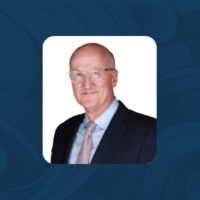
We are publishing this issue of ACAMS Today in conjunction with our biggest assembly, taking place October 2-4, in Las Vegas. So, if you are reading this in Las Vegas, welcome!
If this is your first ACAMS Assembly, I hope the opportunity to engage with more than 2,000 dedicated anti-financial crime (AFC) professionals is as energizing and enlightening for you as it is for me when I attend ACAMS events throughout the year.
Our subjects are always topical and evolving, even those that are recurring. Assemblies held in the first half of the year—Tallinn in March, Hollywood, FL, and Dublin in May and Austin in June—have reflected our commitment to bringing insights into legal and regulatory issues in each jurisdiction.
Beneficial ownership remains a global concern and a head-lining topic at our events, not least as multiple jurisdictions create registries and navigate cross-border sharing of the resultant data. And, of course, there are universal questions regardless of jurisdiction: Who will be required to file ownership information, who will be responsible for its accuracy, and who will have access to it?
In the U.S., obstacles to creating a national ownership database mandated by the Corporate Transparency Act (CTA), and questions about how it should function, remain vital to our members. As I write, the Financial Crimes Enforcement Network (FinCEN) has announced its intent to delay the reporting requirement for entities formed after January 1, 2024.1
You can expect the U.S. regulatory scheme for the CTA to be addressed on Day 1 in Vegas when FinCEN and the other banking agencies take the stage, and, as notably, on Day 2 in the keynote and Q&A featuring newly appointed FinCEN Director Andrea Gacki.
The aftereffects of the failure of several cryptocurrency exchanges and stablecoin “minters,” as well as the legitimacy of crypto-assets was a topic of lively debate in Dublin, and will also resonate in Las Vegas; particularly since bank closures linked to the failure of FTX and others were a U.S. phenomenon.
The collapses of Silicon Valley Bank (SVB), Signature and First Republic have already received initial attention from the Hollywood regulatory panel in March.
By way of background on digital currency, find “A Look at the Latest Crypto Criminal Cases” in this issue.
Artificial intelligence (AI) has gotten “real” again—witness The Assembly Europe in Dublin in May and The Fintech and Crypto Summit in Austin in June—and you can expect it to be a theme in Vegas, including a panel on how AI can be used to combat human trafficking.
At ACAMS’ Dublin assembly, we heard regulators from the Netherlands and France urge institutions to adopt AI. Their enthusiasm for its benefits was coupled with warnings that institutions must master their AI usage, including the capacity to explain how decisions are made and ensuring that human reviewers are in place to parse results.2
For further thoughts about AI, see “Exploring the Role of Generative AI In Enhancing Financial Crime Compliance” in this issue.
Sanctions compliance remains one of the great commitments of the AFC community and will be among the topics addressed by the opening speaker, Department of the Treasury Assistant Secretary Elizabeth Rosenberg. In addition to sharing the Department of the Treasury’s position on sanctions, particularly related to Russia’s invasion of Ukraine, Rosenberg will also discuss other Department of the Treasury initiatives vital to the AFC community.
All of this is to emphasize the importance and benefits of AFC community convenings, at conferences, chapter events and within these ACAMS Today pages. After all, the process of coming together at ACAMS assemblies is just the beginning. We hope you will take the concepts and strategies you’ve gathered from our keynoters, fireside chats, panels and organized discussions, as well as your networking conversations, back to your colleagues and implement what you’ve learned to strengthen your AFC practice. In other words, what happens in Las Vegas—or any other conference city!—should not stay there!
Kieran Beer, CAMS
Chief Analyst, Director of Editorial Content
Follow me on ![]() : @KieranBeer
: @KieranBeer
“Financial Crime Matters with Kieran Beer”
- Fred Williams, “EXCLUSIVE: FinCEN Wants to Delay Beneficial Ownership Reporting Requirement,” ACAMS moneylaundering.com, August 21, 2023, https://www.moneylaundering.com/news/exclusive-fincen-wants-to-delay-beneficial-ownership-reporting-requirement
- “It’s very important to make sure that there is a human check on the outcomes of these models, for example when it may lead to a de-risking decision,” said Willem Schudel, head of financial crime supervision at De Nederlandsche Bank, at The Assembly Europe 2023 in Dublin.










